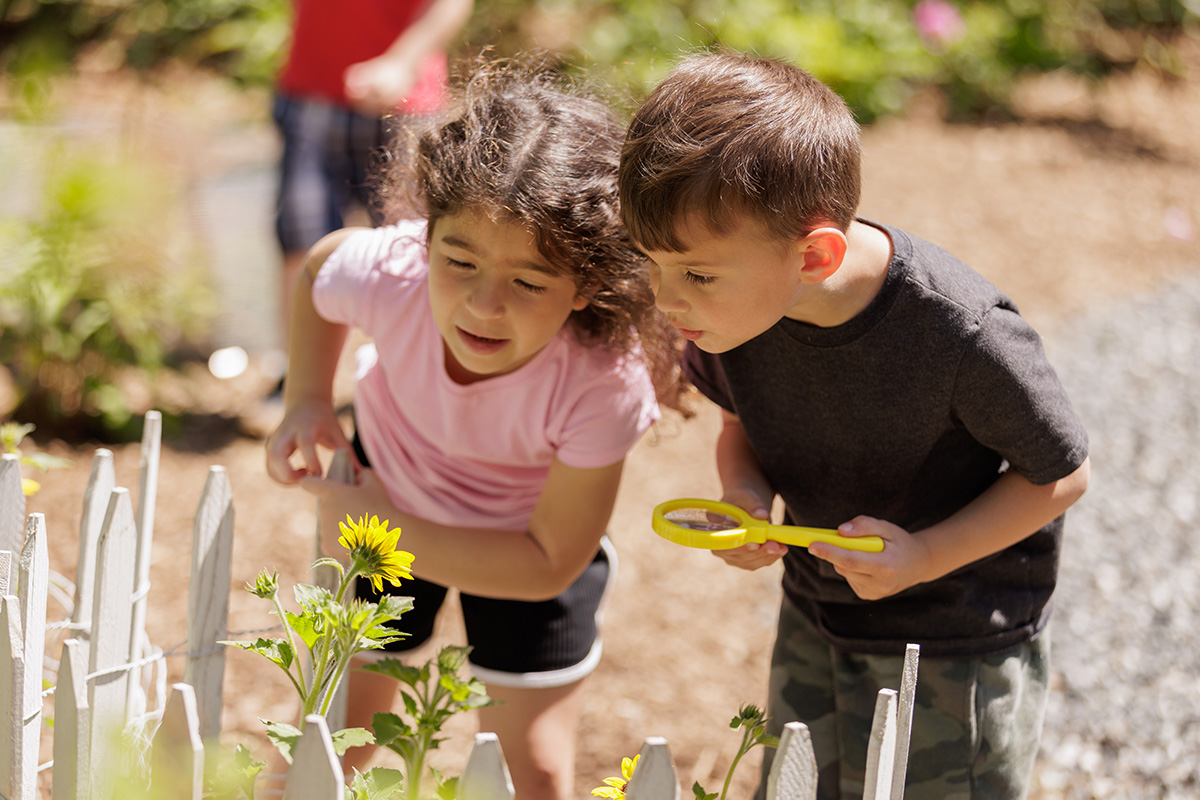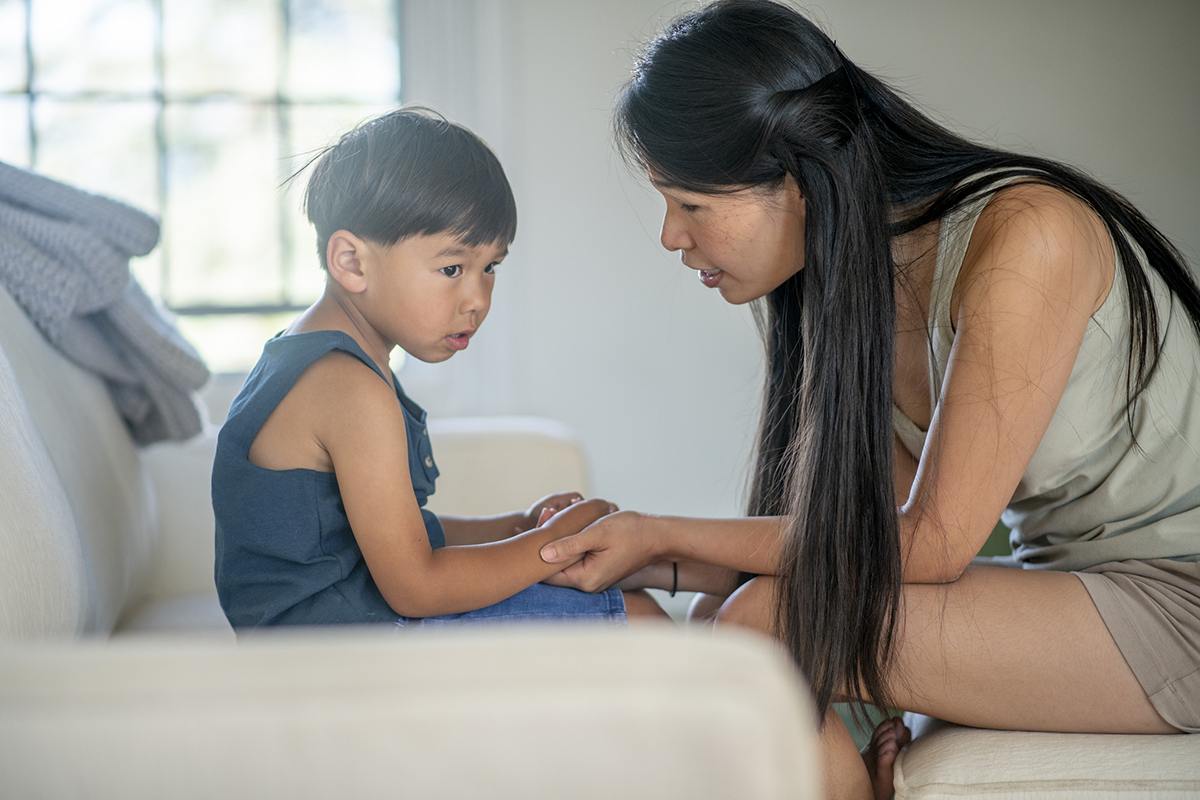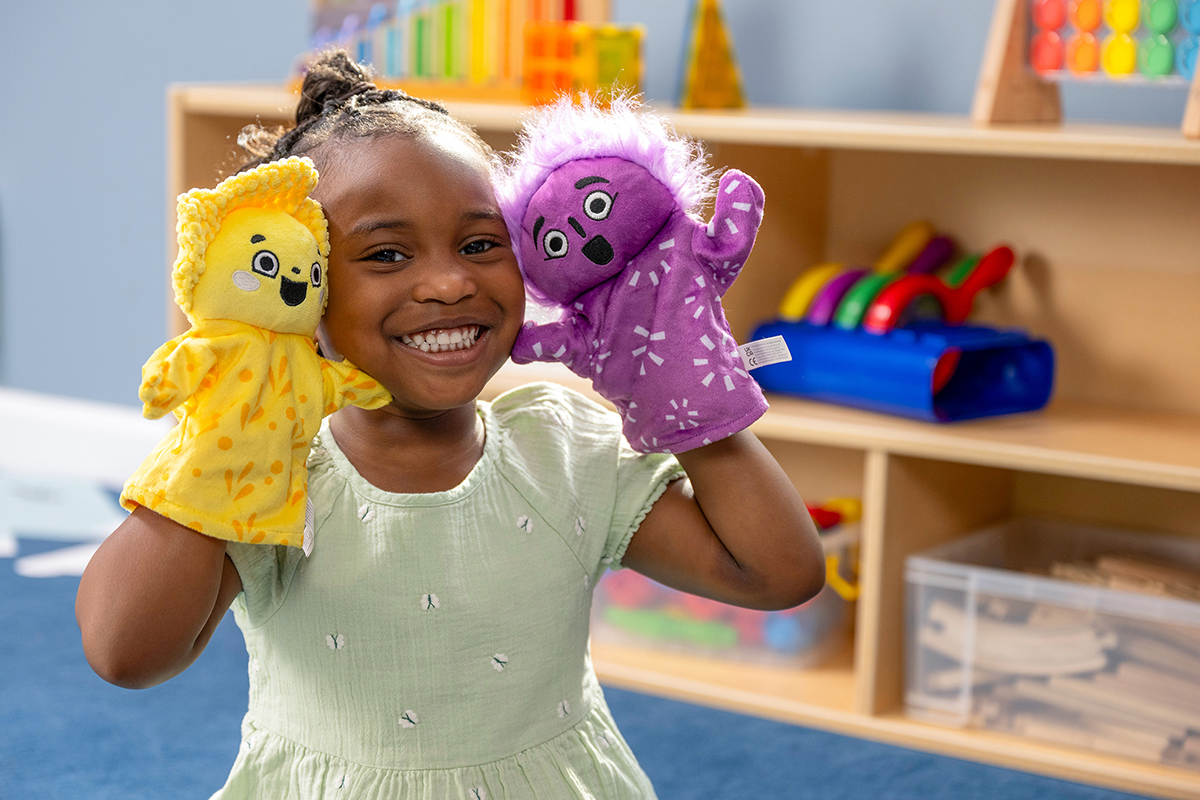Your little one is just starting to explore the world, splashing through mud, inspecting tiny details of their world like ant hills and flowers and asking lots of questions. This joy they experience playing outside is more than just fun and games. Children learn so much by just being outside. One of the benefits of outdoor learning is that the “circle” of a rock or “line” of a stick can bring classroom topics like shapes to life. From enhancing cognitive development to promoting mental health, encouraging environmentalism and so much more, outdoor learning is an important part of any preschool curriculum.
Enhancing Cognitive Development
During their early education, your child is in a constant state of growth, and outdoor learning activities are a wonderful way to naturally increase their cognitive abilities. Playgrounds and the natural world allow young children to try new things, explore their independence and start to learn healthy risk taking. Free play outdoors teaches children how to communicate with each other, pick up on social cues, practice conversation skills, respect boundaries, follow rules and share, which are all key in preschool cognitive development.
Improved Problem-Solving Abilities
- Navigating outdoor obstacles together like helping each other step over fallen branches and avoid rocks helps little ones develop their problem-solving abilities.
- Climbing on playground equipment helps preschoolers improve their awareness of cause and effect, as they have to reason through questions like, “how do I get to the part with the slide,” or, “which foot do I put down first here.”
- Balancing on anything from an outdoor climber to a fallen log helps preschoolers learn to be aware of how they are moving, and that it’s all right to backtrack or even start over to reach the other side.
Promoting Well-being
Outdoor education activities help your little one grow emotionally and socially, while also providing a plethora of opportunities for physical development. Preschool physical education outdoors is free from constricting walls or furniture, so young children can roll around, climb, jump and run. Young children develop increased balance and motor skills by traversing playground equipment and working together with their peers to explore everything from sailing down playground slides to jumping from tree stump to tree stump.
Enhanced Motor Skills and Coordination
- Determining where to place their hands and feet when climbing on playground equipment or avoiding obstacles like fallen branches helps your little one improve their gross motor skills.
- Swinging on swings and climbing jungle gyms teaches children how to maintain their balance and shift weight to move while staying in place, increasing their coordination and balance skills.
- Digging in sand and dirt helps young children develop fine motor skills and dexterity.
Fostering Social and Emotional Skills
Large outdoor play pieces like climbing structures and slides naturally encourage preschool social skills, as young children practice taking turns, being patient while they wait and learning by watching others. Free play on playgrounds and imaginative games also help little ones practice conversation skills, recognize social cues and respect boundaries.
Building Cooperation and Communication Skills
- Waiting their turn for various solitary equipment like slides or swings teaches little ones patience and how to be considerate of others.
- Multi-person play equipment like see-saws teach preschoolers cooperation and communication skills as they learn to work together to have fun.
- Imaginative outdoor play improves preschool communication skills as young children work together to build imaginative worlds and communicate what they are “seeing” – a rock becomes a talking frog or a stick becomes a magic wand.
Encouraging Environmental Awareness and Sustainability
It is never too early to encourage environmental awareness, and outdoor play is a fun, natural way for young children to begin to understand the importance of taking care of nature. Positive experiences like scratching shapes in warm dirt on a spring afternoon encourage your child to feel connected to the natural world. When combined with mindful learning, like encouraging young children to bring snack wrappers inside to recycle, helps them build a connection between fun outdoor activities and sustainability.
Stimulating Creativity and Imagination
Nature is full of unlimited props for imaginative play. The same stick can change from a pirate’s sword to a magic pencil, and by encouraging young children to see the limitless potential in nature, their creativity and imagination grows. Outdoor play offers a blank slate for preschool creativity, where children can work together to navigate obstacles and build their own worlds using what they find around them.




